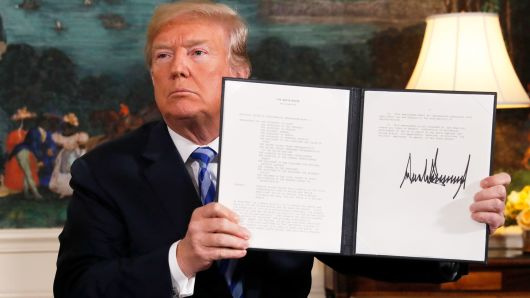Sanctions: Tools of American Hegemony

The unilateral American sanctions, presently imposed on countries such as Cuba, Iran, Russia, and Turkey, are rationalized as an "art form" and, yet in reality, are the opposite of art -- that is the antithesis of a technique of bullying and oppression to serve the interests of an interventionist Western superpower addicted to it. Richard Nephew, one of the architects of Iran sanctions now glorifying US sanctions in his new book, titled The Art of Sanctions: A View From the Field, does not even bother with the necessary conceptual distinction between art and craftsmanship, nor the questionable prudence of this favorite tool of American foreign policy that has turned into its greatest poison pills undermining the credibility of American power. One simply does not call a cruel torturer's method an art, in light of the simple yet profound fact that US's overuse of sanctions has turned the sanctions tool box into an illegitimate means of warfare and human rights abuse.
But, of course, it is futile to search for any meaningful debunking of the myth of usefulness of sanctions in the narrative of Nephew and other American apologists for the American "sanctions regime" that, in reality, reflects North America's totalitarian tendency, imposing its iron will on, among others, the heroic people of Cuba for several decades. Fortunately, the emperor's mask has fallen and the more US relies on this coercive method of bullying other nations, the less effective and more hated worldwide it becomes, as the sanctions' tentacles reach wide and deep and, as in the case of Iran today, target not only Tehran but also the US's own allies in Europe and elsewhere around the world, thus turning the so-called "smart" sanctions into indiscriminate means of collective punishment.
In an ideal world not distorted by the machinations of power, UN would be the only body vested with legitimate authority (under Article 41) to impose sanctions on nations and groups and entities accused of violating the UN Charter. In this regard, UN has a mixed record and its oil-for-food Iraq sanctions represent one of the darker chapters, in light of the suffering it inflicted on the Iraqi population and the death of half a million Iraqi children. Unfortunately, as an inter-governmental organization beholden to the big powers, UN has its own set of problems that reflect the world's hierarchies and uneven distribution of power. Nonetheless, UN sanctions are, from the prism of international law, legitimate and lawful, whereas US unilateral sanctions are illegitimate and unlawful, particularly as they pertain to Iran today.
After all, US has re-imposed sanctions removed by the UN Security Council (Resolution 2231), which in essence puts the US at odds with the Security Council. Therefore, a direct condemnation of the UN at the Security Council is called for, which is sadly lacking due to the sheer influence of US at the Council. Iran's Ambassador to UN, Gholamali Khoshroo, has recently penned an opinion article in the Guardian, reminding the world that Iran is for the first time in history being punished for complying with a UN resolution, indeed a staggering perversion of global norms and principles and, simultaneously, a lapse back into the bosom of a new era of global feudalism with the US desperately trying to reverse its relative decline and exert hegemony on the rest of the world.
Yet, by all accounts this is a hopeless cause and US is destined to fail in its current great gambit against Iran, which has put it on a collision course with Iran. US can ill-afford another costly war in the Middle East and it would be a huge distraction from its China and Russia deterrence strategy. Iran ought not to fear a smart power politics with the US in Persian Gulf and the worst mistake would be to jettison its calculated brinksmanship in favor of a straightforward diplomatic approach. US cannot be persuaded by an diplomatic means and responds only to the operations of soft/hard power. To effectively counter the latest salvos from the cannons of American hegemony, Iran must properly analyze US's own vulnerabilities, including the present transatlantic rifts that reflect US's isolation on Iran. A Gramscian 'war of maneuver' denoting smart counter-hegemony is required in Iran that targets American sanctions for an apt conceptual and epistemic deconstruction, as the art of human cruelty and warmongering interventionism.

